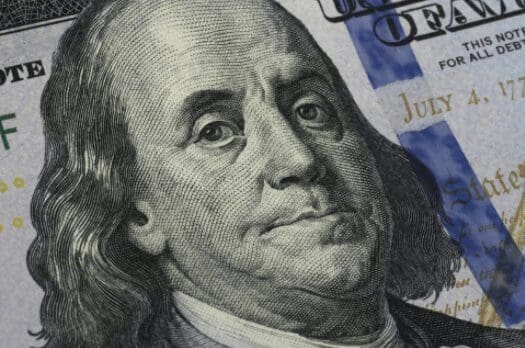The CARES Act provided many Americans with financial relief in the form of a $1,200 stimulus check. But as that program rolls out, it has become apparent to lawmakers that more financial assistance is needed. There are currently several proposals from various lawmakers that would provide Americans with ongoing financial support. You can learn more about current proposals here.
Now you can add the Automatic BOOST to Communities (ABC) Act proposal, which was introduced by Congresswomen Rashida Tlaib (D-MI) and Pramila Jayapal (D-WA).
If approved, the ABC Act would provide every American with a BOOST debit card that is preloaded with $2,000. The card would be reloaded with $1,000 each month until one year after the end of the COVID-19 crisis.
The bill calls for the use of pre-paid debit cards to assist those who are unbanked or do not have access to check cashing services.
Who Would Be Eligible for the $2,000 Stimulus Payment & $1,000 Recurring Payment?
The goal of this bill is to guarantee no one is left behind. As written, the bill would provide a $2,000 pre-paid debit card to everyone, including:
- Taxpayers
- Dependents
- Non-citizens
- Individuals who do not have a bank account, social security number, or permanent address.
- People living in unincorporated territories or protectorates and Americans living abroad.
Dependents: The proposal gives an example of a family with four dependents being eligible to receive a pre-paid debit card for each taxpayer and each dependent. For example, a couple with two children would receive 4 debit cards at $2000 each, for a total of $8,000.
Non-citizens: This would include permanent residents, undocumented individuals, and temporary visitors whose stay exceeds three months.
These pre-paid debit cards would be reloaded with $1,000 each month until one year after the coronavirus emergency ends.
The U.S. Treasury Would Work with Other Agencies to Develop a Comprehensive List
The proposal calls for the U.S. Treasury to work with other governmental agencies to develop the most comprehensive list of recipients possible. This would include working with the Internal Revenue Service, the Social Security Administration, the Federal Election Commission, and every other relevant federal, state, and local government agency, including state-level Departments of Motor Vehicles (DMVs).
How Would Money Be Distributed?
The funds would be distributed via pre-paid U.S. Debit Cards in a program managed by the U.S. Treasury.
The pre-paid U.S. Debit Cards would be distributed via:
- Direct Mail
- In-person Pickup
- At-Risk Outreach
All individuals with an active address on file with any government agency would have a card sent to them to that address via USPS.
In-Person Pickup would apply to those who do not have a permanent address, as well as permanent residents, undocumented individuals, and temporary visitors whose stay exceeds three months.
At-Risk Outreach would address those who are elderly, homeless, disabled, or those live in remote areas.
How Could the Funds Be Used?
The pre-paid U.S. Debit Cards could be used to make purchases at stores or online, or to make cash withdrawals at ATMs. Cardholders would also have the ability to top up their balances at any time, either during or after the crisis.
The ABC Act Would Be Paid For with Two $1 Trillion Coins
The ABC Act would be funded directly from the Treasury with no additional debt issued by minting two $1 trillion platinum coins. Additional coins would be minted as needed. Title 31 of the U.S. Code gives the Treasury Secretary the authority to mint and issue platinum bullion coins (see 31 U.S.C. § 5112(k)).
Proposal Calls for Digital Dollar System by 2021
This proposal also outlines the possibility of using the infrastructure behind the U.S. Debit Card system to create a “digital public currency wallet system,” or a digital currency based on the U.S. dollar.
Forbes Contributor Jason Brett interviewed Congresswoman Tlaib about this topic in this article.
You can learn more about this proposal here, or read the full text here.





















